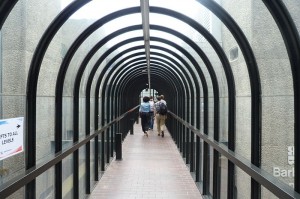I saw this story by Lynn Wilder and it triggered for me, of course, my studies in conversion theory (Turning to Jesus and, with Hauna Ondrey, Finding Faith, Losing Faith).
The summer of 2006, my husband and I mustered the courage to drive two hours away from our largely Mormon community in Utah to attend a non-Mormon church on a Saturday night. That way, no Mormon friends or priesthood leaders could possibly see us. We were paranoid, worried that if someone from Brigham Young University saw me at a non-denominational Christian church, I would lose my ecclesiastical clearance and my job as a professor….
Our son had faced similar dangers. He risked everything—faith, family, friends, girlfriend, college scholarship, respect—by stepping out of Mormon belief. This son stood before a roomful of fellow Mormon missionaries in Florida to say he had been reading the Bible and now believed in a God of grace—meaning he no longer needed to perform the “good works” outlined by the Mormon church in order to be saved. That was a remarkable act of courage for a 20-year-old in Mormon culture. He was deemed unworthy to be a missionary and sent home. He had been willing to face the consequences. I didn’t understand how or why. But I began investigating this God he found so compelling.
My husband Michael was guarded. He knew that if we bucked the Mormon church, I’d never work again. My apostasy would be splashed across the pages of the Mormon-owned newspaper and the Mormon-owned TV station in Salt Lake City. Who knows what else they could dredge up to report? Then all those years, all that money, all those skills would go down the drain, and we still had three kids to put through college. But Mike had vowed long ago that whatever we decided spiritually, we would do together.
When we parked at the church that first night, I realized that one of my BYU colleagues lived close enough to recognize my car. Every time we drove the two hours there, we sweated bullets for fear of being discovered….
The cross that symbolized that love was so powerful to me, my husband and I went to the Provo Mall in early December to buy a necklace with a cross on it. The jewelry store employee said since the cross is an offense to the local Mormon population, they did not display them openly in the case. We were ushered into the back room to view the few they carried. On a crisp Christmas day in 2006, I removed the Mormon temple garments—the famous “special underwear”—I had worn for 30 years and replaced them with the cross necklace.
Wearing the cross on the BYU campus would be problematic. The university is a theocracy, not a democracy; if I was caught, I would be called in by my superiors and lose the ecclesiastical clearance I needed to work there. Even though I was tenured, if I left my once-beloved Mormon faith, I would lose my job. So I wore the cross underneath some high-necked clothes and applied for jobs in Florida.











